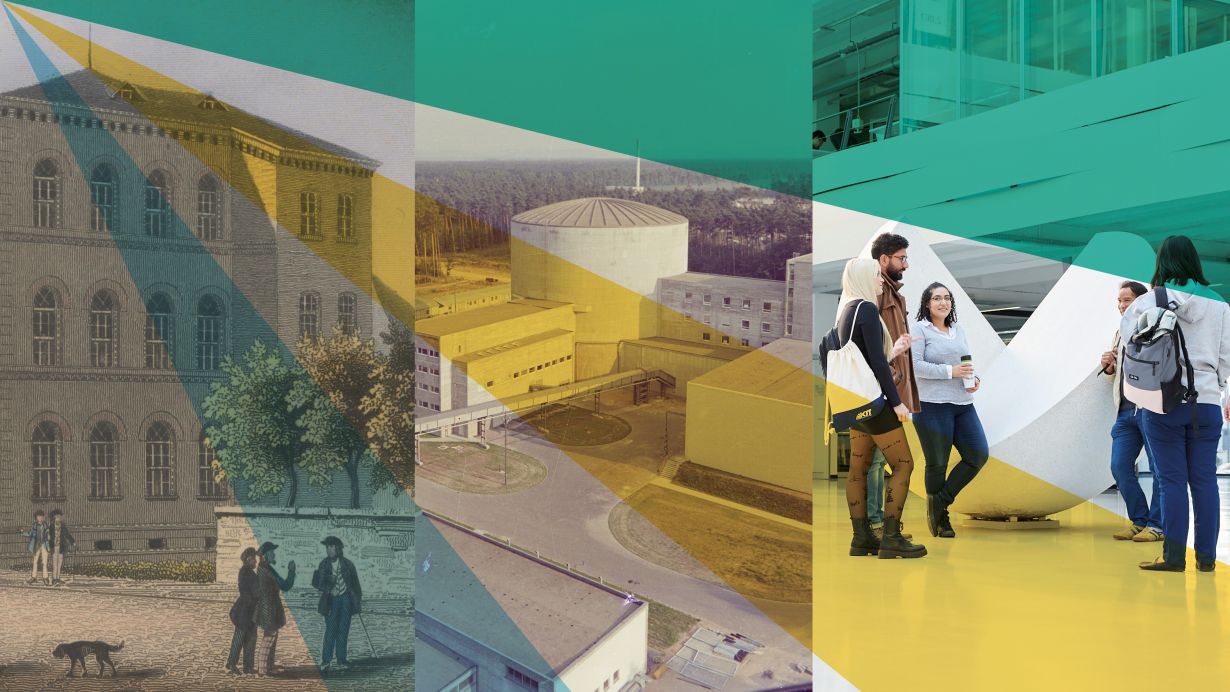This year, Karlsruhe Institute of Technology (KIT) looks back on its 200-year history. The Colloquium Fundamentale of General Studies. Forum Science and Society (FORUM) at KIT will shed light on this history shaped by change and a variety of scientific and societal challenges. It will host a series of lectures in German in cooperation with the KIT Archives during the summer semester to mark the occasion of the anniversary. The archives’ director, Dr. Klaus Nippert, will kick off the series on Thursday, May 15, 2025, at 18:00 hrs [VJ(1] at InformatiKOM with the lecture “Von der Schulbank zur Einheit von Lehre und Forschung. Die Entwicklung der Polytechnischen Schule Karlsruhe zur Technischen Hochschule (1825-1914)” (From school bench to the unity of teaching and research. The development of the Polytechnic School in Karlsruhe to the Technical College (1825–1914). Admission is free.
KIT celebrates its 200th anniversary in 2025. Although KIT was not established as an institution until 2009, the history of its predecessors goes back a long way. Just a brief look back raises questions. Why didn’t KIT start out as a university? What was the journey like? Under what circumstances did the first women begin their studies at the previous institution? What was the purpose of nuclear research and why is there no longer a nuclear reactor at KIT? At the Colloquium Fundamentale, experts will provide insights into KIT’s evolved identity, shed light on problems in its history, and present the institution’s current approaches to resolving conflicts of interest.
The Colloquium Fundamentale will take place on the dates indicated below at 18:00 hrs in the atrium of InformatiKOM, building 50.19 at Adenauerring 12 on KIT’s Campus South.
Program (with lectures held in German)
Thursday, May 15, 2025: Von der Schulbank zur Einheit von Lehre und Forschung. Die Entwicklung der Polytechnischen Schule Karlsruhe zur Technischen Hochschule (1825–1914)
Dr. Klaus Nippert, Director of the KIT-Archives
With a Welcoming Speech by Professor Thomas Hirth, Vice President Transfer and International Affairs of KIT
Thursday, May 22, 2025: Technisch möglich. Frauen im Studium an der TH Karlsruhe 1920–1933
Alissa Schneider, KIT Master Student European Culture and History of Ideas (EUKLID)
Thursday, June 5, 2025: Wissenschaft und Nationalsozialismus. Überlegungen zur NS-Vergangenheit des KIT
Dr. Anton F. Guhl, Historian, Lüneburg
Thursday, June 26, 2025: Von der Reaktorstation zum KIT – ein Weg mit Überraschungen
Professor Manfred Popp, Former Chairman of the Executive Board of the Forschungszentrum Karlsruhe
With a Welcoming Speech by Professor Thomas Hirth, Vice President Transfer and International Affairs of KIT
Followed by a dialogue with Professor Marcus Popplow, Chair for the History of Technology at KIT
Thursday, July 10, 2025: Studentischer Protest – '68 bis heute
Sascha Gruber, Social Welfare Officer of the General Students' Committee (AStA) at KIT
Thursday, July 17, 2025: Technik und die Folgen. Das KIT als Ort von Innovation und Verantwortung
Professor Armin Grunwald,Head of the Institute for Technology Assessment and Systems Analysis at KIT
More Information (in German)
More about FORUM
Detailed Caption: Open dialog and various perspectives: The Colloquium Fundamentale in the summer semester 2025 focuses on essential processes, characteristics, and controversies in KIT’s history. [VJ(1] (Photo (left to right): KIT Archives (28015/1); KIT Archives (28028/01794); KIT)
In close partnership with society, KIT develops solutions for urgent challenges – from climate change, energy transition and sustainable use of natural resources to artificial intelligence, sovereignty and an aging population. As The University in the Helmholtz Association, KIT unites scientific excellence from insight to application-driven research under one roof – and is thus in a unique position to drive this transformation. As a University of Excellence, KIT offers its more than 10,000 employees and 22,800 students outstanding opportunities to shape a sustainable and resilient future. KIT – Science for Impact.

